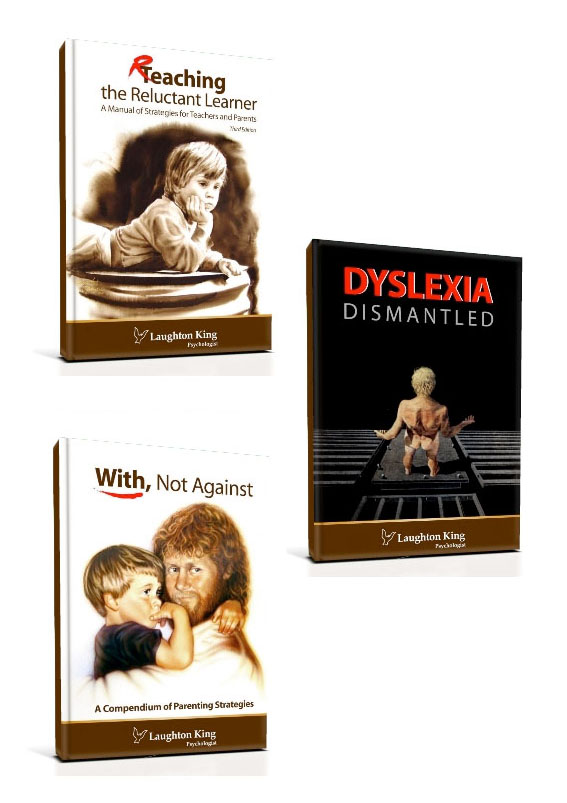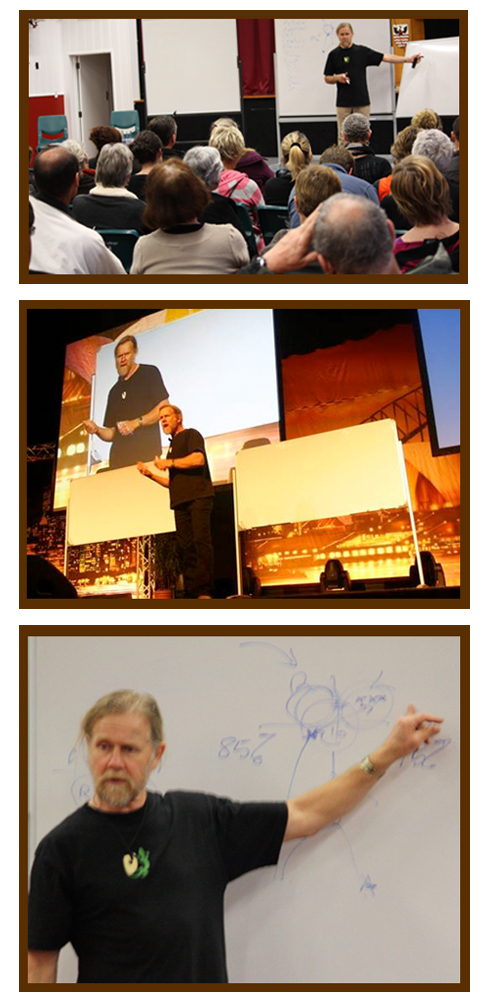Dyslexia – What is it – really? – Dyslexia Dismantled
The latest ghost disease to hit the Western World – DYSLEXIA. Socially and personally debilitating, it is generally regarded as a ‘reading and writing difficulty’ that has taken root and spread through our education system like some sort of virus. Fifty years ago it was unheard of, yet now it is common, with definitions and diagnoses of dyslexia (sometimes called ‘dislexia’, ‘dixlexia’ or even ‘dixlixia’) rampant in our educational fraternity. It is a ghost disease because perhaps it is not really what people think it is – hence the need for the book Dyslexia Dismantled.
Teachers and parents alike are asking ‘Is this child dyslexic?, even ‘Am I dyslexic?’ ‘What is the definition of dyslexia’, ‘Is there a test, and how do I diagnose dyslexia?’ The questions go further as people dig deeper for more information, more knowledge of the symptoms of this mysterious ‘dyslexia’.
Laughton King has spent the last 61 years, first as a dyslexic child, then as a dyslexic adult – as well as 30 years as an Educational Psychologist working with children with educational (and behaviour) difficulties. After many years of working directly with these children, now, as an Educator, he lectures, and runs workshops for teachers and parents, helping them to understand their ‘dyslexic’ children, and to understand the dyslexic thinking style.
His approach is simple – and perhaps a little different. He suggests that most people who are talking about dyslexia, and even most people who research and write about it, have never been dyslexic themselves. As ‘experts’ they observe children, what they do, and how they do things, then interpret their observations. The danger, he says, is that so many ‘experts’ make their interpretations and their judgments from a knowledge-base that is unreliable in that it does not include inside knowledge from their own personal experience.
In order to work with these children, he says, we must understand their thinking style, and their perceptual framework. Without that, he says, we stand to cheat and short-change these children. Guesswork, even intelligent guesswork, is not good enough.
In his books about dyslexia, and in his dyslexia workshops he advises caution regarding tests for dyslexia, and even definitions of dyslexia, as he suggests these may mislead, and draw people into a misunderstanding of who is, or is not dyslexic, and even of what dyslexia really is – let alone how to teach the dyslexic child.
Laughton King believes that despite all the publicity and discussion about dyslexia, most parents, and indeed most classroom teachers do not really understand what dyslexia is, or how it presents in a child. The general belief is that ‘dyslexia’ is a reading and writing problem. Laughton says that this is like saying a window is a house – when really it is only a small part of the house. Although many people now recognize that the dyslexic child tends to be a right-brain, pictorial processor, the real implications of this in the child’s moment-to-moment living are both complex and crucial.
Although they are often not identified as such, there would be, on average, about five children in every classroom in the Western world who are ‘dyslexic’ – or as King would rather say, are ‘Diesels, being fed petrol in a petrol-based education system’.
Typically, he says, rather than being recognized as dyslexic, they are seen as being lazy, unmotivated, naughty, uncooperative, or as down-right confrontational. He knows that like any other child, they can be intelligent, average or even above average achievers, or they can be the slower child. Dyslexia is not a matter of level of intelligence.
“As long as we adhere to the notion that Dyslexia is a reading and writing problem,” he says, “we will continue to misunderstand, and short-change these children.”
“My task, having been a ‘dyslexic’ person myself for the last 60 years, is to help the people closest to this child understand what makes him tick.”
“Let’s stop blaming the victim. There is nothing wrong with the dyslexic child – he does not need re-wiring, re-calibrating, medicating, or fixing in any way – he just needs us to speak his language.”
“If we continue to see Dyslexia as being merely a reading and writing problem, we will continue to deprive these people (be they dyslexic children, or dyslexic adults) of any real understanding or support in terms of the extent and depth of their difficulties.
When we recognize that, in common with persons born without hearing, they have a greatly reduced internal language-processing ability, we will begin to understand the real implications of the ‘dyslexic’ state.
A key notion, and a place for teachers and parents to start, in the notion of ‘self-talk’ – sometimes known as ‘inner-dialogue’. Whereas most of us use internal-dialogue (self-talk) to perform a myriad of functions – to self-monitor, to remember, to internally repeat verbal messages, to process information, to compare concepts, to project, to prepare, and to label – the ‘dyslexic’ is more singularly reliant on the functions of his ‘pictorial’ brain – a style that can lead to apparent behaviour problems.
The capacity to ‘self-talk’ using language could be regarded as being basic to academic functioning. With a diminished ability in this regard the ‘dyslexic’ person is at a social and educational disadvantage, and is frequently confused, and less able to ‘work things out’ using language. King suggests that much of our ‘remedial education’ programming is like fuel-injected petrol for the diesel motor.
In a nutshell, in King’s experience, the dyslexic person is ‘dys-lexic’ in that they have less natural ability to use language as a thinking tool.”
His three books: REACHING THE RELUCTANT LEARNER, DYSLEXIA DISMANTLED, and WITH, NOT AGAINST, together with his three-hour seminars, and his two-day workshops, are designed to help the teacher and parent understand the mind-space of the dyslexic child. Only when we understand how this child thinks, how he processes information, what he can and can’t conceptualize, can we orientate our teaching and our parenting to this child’s best advantage.
In his presentations King refrains from creating a teaching program for dyslexic children, and even refrains from offering a test for dyslexia. Instead he offers insights and understandings of the dyslexic mind-frame, strategies and examples of teaching approaches, and clarification of the impact of common teaching methods.
Laughton King’s books REACHING THE RELUCTANT LEARNER, WITH, NOT AGAINST, and DYSLEXIA DISMANTLED are now available in both hard-copy and e-book presentation. He is available for short seminar presentations, two-day workshops, or as a demonstrational Conference presenter.
Please inspect our site “Dyslexia Dismantled” it holds rich content relevant to all aspects of Dyslexia.




